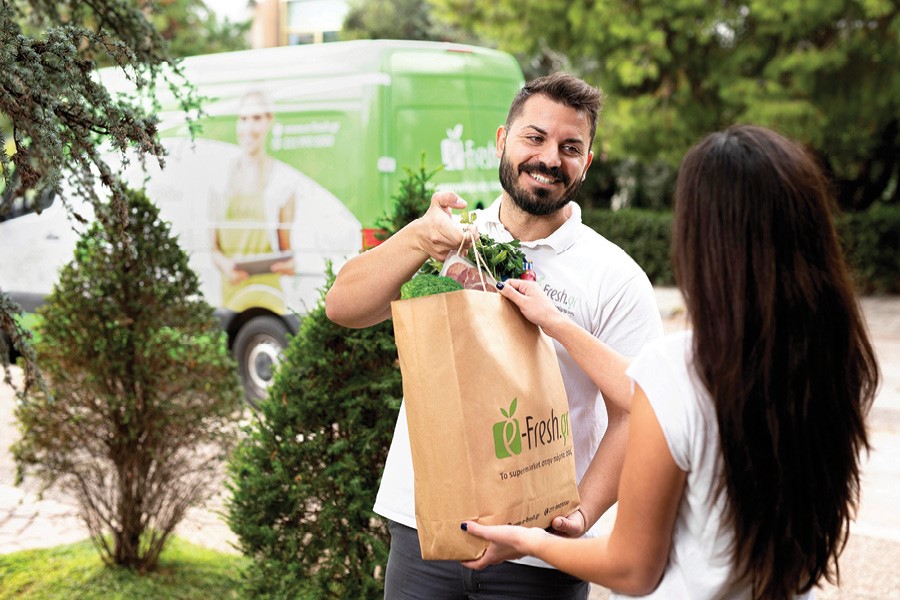e-Commerce
Promoting sustainable grocery shopping choices in an online retail store
Striving for more sustainable consumption choices in Greece.

Motivation
The continuous growth of e-commerce and online retail is a reality for the last decade, further upscaled during the pandemic. e-fresh, one of the key players in the online retail market in Greece, is targeting to contribute to a positive influence in the adoption of sustainable consumption choices and to raise awareness in aspects related to the impacts of climate change. So far, although e-fresh consumers have expressed a positive attitude towards the adoption of more sustainable food consumption, they remain sceptic due to higher prices, lack of trust, lack of knowledge, and lack of association of meat-based products or plastic food packaging with their environmental impact.
Towards reaching these goals, the Carbon Footprint (CF) labelling scheme, linked to the already highly digitised nature of e-fresh activities, encompassing customer engagement campaigns around plant-based products, will further promote sustainable consumption practices and are expected to improve the awareness of climate change issues and acceptance of green products for its customers.
Pilot Scope and Activities
In the scope of the Greek Pilot efresh is targeting to inform the 200,000 registered users of the e-fresh online supermarket service, (of which at least 50.000 are very active) for the impact of their food consumption choices through their purchased products and therefore motivate them to adopt a more sustainable lifestyle.
A digital Carbon Footprint (CF) traffic-light concept will be incorporated in the efresh online retailing store, enabling users to track the Carbon Footprint of a representative set of food items, leveraging on the Life-Cycle-Assessment (LCA) method, relating to both the production and packaging stages.
Food products with low environmental impact (e.g. with lower CO2eq) will be categorised following the traffic-light concept, consolidating an aggregate “climate-resilient” impact score collected at regular intervals and disseminating it in the consumer’s profile. Based on this “climate-resilient impact score” and the historical data and evolution of user consumption, and a number of dedicated interventions, targeted campaigns or challenges, a personalised sustainability pathway will be possible, supporting consumers to understand the essential contribution of their choices to climate change and motivate them to continue adopting sustainable consumption choices.
For more active and engaged users, virtual focus groups will be organised, discussing the main incentives and barriers towards more sustainable consumption choices, present associated health and biodiversity impacts at familiar scales, and trying to use stakeholder knowledge and stakeholder-friendly IAM interfaces to interpret the associated campaign results.
Enablers
Carbon Footprint label, data storytelling visuals and narratives, Randomised Control Trials framework, CHOICE IAM models through interactive interfaces, Behavioural models
Expected Measurable Outcomes
- 10-20% of registered users inclined to purchase food items with sustainable impact
- 10-20% of registered users maintain an active involvement in at least 2 large-scale campaigns and 4 monthly challenges with CHOICE related objectives for a total duration of at least 12 months.
- Increase users’ adoption of the available sustainable food products by at least 10% .
- Reduce the aggregated values of user’s CF scores in a period of at least 6 months
- Increase in sales of plant-based, bio- and other sustainable products and insights of how this is correlated with the engagement campaigns;
Partners Involved
Pilot leader

Partners:

![]()
![]()



